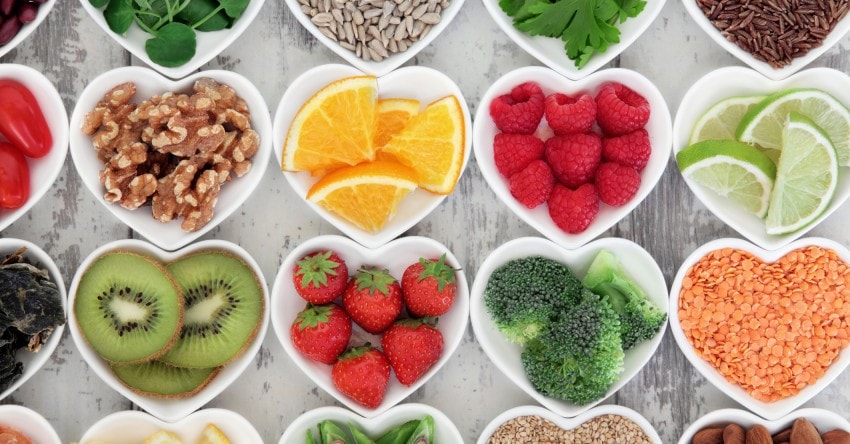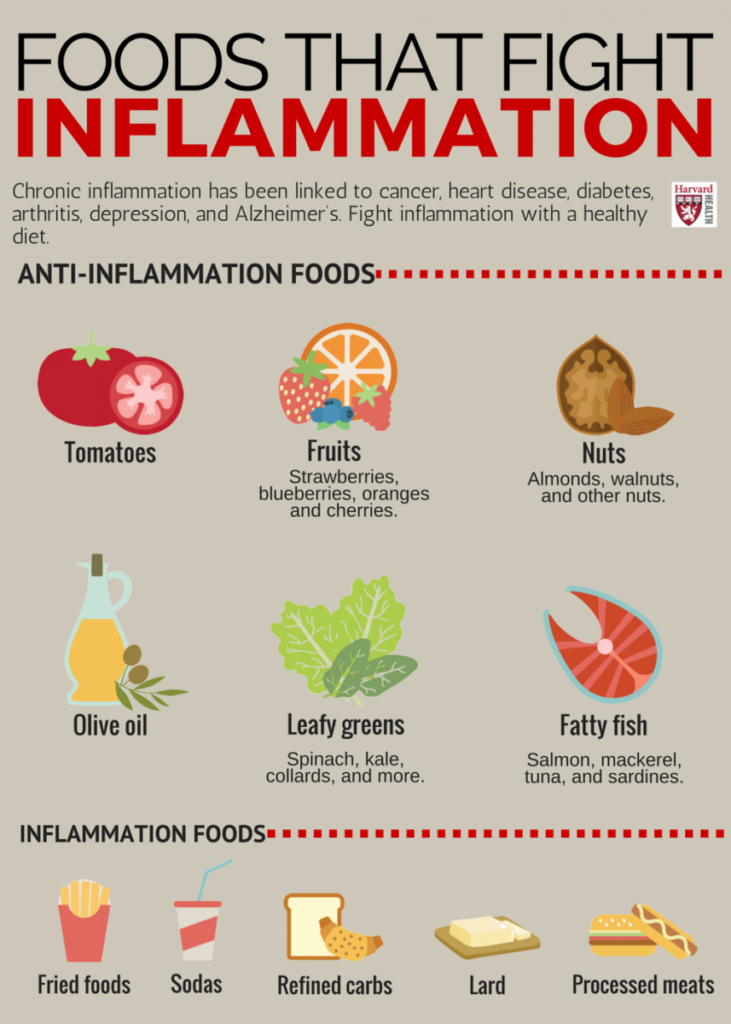Clinical Nutrition Assistant, Rachel Naar, MS, works closely alongside Clinical Nutritionist, Michelle Miller, MSACN. In this article, Rachel shares the best kinds of food to help reduce inflammation as well as some foods you should avoid that can cause inflammation.
What Causes Inflammation?
What many people may not realize is that inflammation is in fact the body’s way of protecting itself from infection. Consider it your Superman or Wonder Woman saving your day with some kick-butt white blood cells.
The goal?
To remove pathogens, irritants, as well as other harmful foreign invaders. This can be useful when you’re fighting the common cold or strep throat, but chronic inflammation can have long lasting negative effects such as weight gain, digestive issues, diabetes, autoimmune disorders, heart disease, and even cancer. With some autoimmune diseases there can be a miscommunication, and the body will trigger an inflammatory response when there are no foreign invaders to fight off. As a result, the body’s protection actually causes damage to its own tissues.
Current research advocates for good overall nutrition to help enhance the body’s immune system and provide the necessary antioxidants to reduce the inflammatory stressors.
Foods to Reduce Inflammation
Below we identify some quick tips and tricks to reduce inflammation:
MORE OF THIS
- Fruits and Vegetables – Allow these foods to make up at least half of your plate. The key here is variety. The more variety in your plate, the more exposure you have to a myriad of antioxidants. Include leafy greens such as kale or brussel sprouts.
- Plant- Based Protein– Include beans, nuts, and seeds into your diet. These foods are also rich in fiber and can help you to feel fuller longer.
- Whole Grains– We all know by now that white bread isn’t doing us any favors. Opt for brown, black or wild rice instead of white, include whole oats and quinoa, and focus on 100% whole wheat bread sources.
- Healthy Fats– Focus olive oil, avocados, nuts and seeds, and salmon as sources of healthy fats.
- Herbs and Spices– A great way to add some flavor without additional empty calories is to add fresh herbs and spices to your meals. Consider it your 1-2 antioxidant rich punch.
Foods that Increase Inflammation
LESS OF THIS
- Sugar– But you already knew that. We’re eating way too many processed foods with additional sugar that’s addicting and inflammatory. Sugar also has the ability to suppress the effectiveness of our white blood cells. The new, redesigned “Nutrition Facts” label will be required on most packaged food by July 2018.The big change: The label will have a separate line showing how much sugar has been added to each food. This means that you’ll be able to derive how much is naturally occurring sugar (such as lactose in a yogurt) vs. added sugar (such as fruit syrup to the same yogurt).
- Fried/ Charred/ Smoked/ Grilled Foods– Fried foods generally are higher in trans fats and contain high levels of AGE that increase the inflammatory response. In addition be aware of charred and highly grilled foods, the carcinogens from these meats and foods can be cancerous.
- Refined flour – When you ingest refined flours (without the bran or germ) you’re consuming the sugar without the fiber and other key nutrients.
- Full-fat dairy– Not only is low-fat dairy recommended, the full-fat form has the ability to disrupt our gut microbiome and decrease the levels of bacteria that can help fight inflammation.
- Saturated/Trans Fats– These exists in foods such as red meats, butter, fried foods, and many processed foods. Trans fats do not occur naturally in nature and as a result our body doesn’t possess a mechanism to properly break them down. The result? A foreign invader inflammatory response. Be sure to read labels and look out for any products with partially hydrogenated oils.
- Artificial Sweeteners– We’re a country addicted to Diet Coke. Studies have shown that these sweeteners, also man-made, enhance the risk of glucose intolerance by altering our gut microbiome.
- Alcohol– New research has linked high alcohol consumption to a variety of cancers. In addition, excess consumption damages liver cells, promotes inflammation, and results in a weakening of the body’s immune system.
Other Factors For Reducing Inflammation
As you can see diet is extremely important. Don’t forget that sleep, stress, and physical activity can have a direct impact on inflammation as well.
Top takeaway: To avoid chronic inflammation make it your MISSION to:
- Achieve a healthful diet.
- Maintain a healthy weight.
- Get adequate sleep.
- Engage in regular physical activity.

